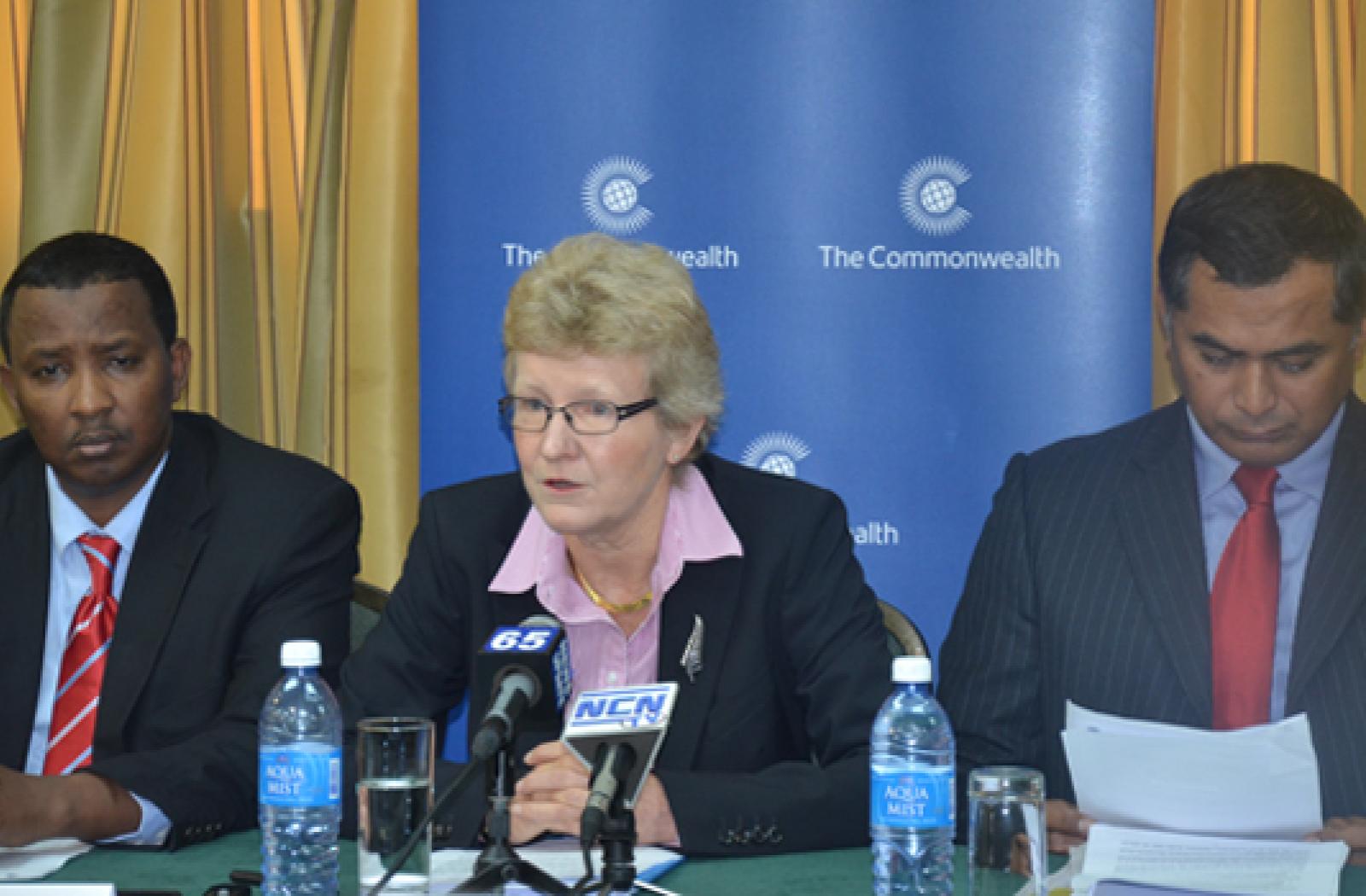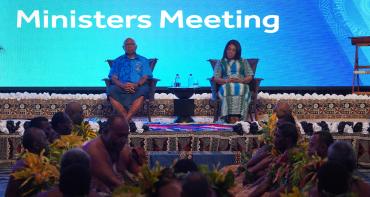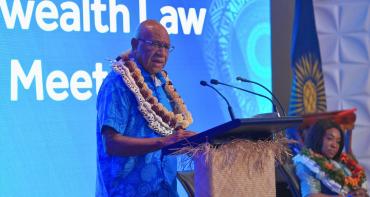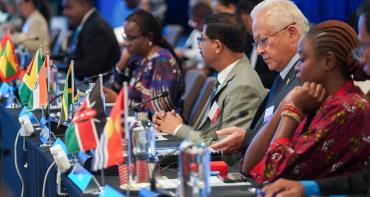Interim statement by Hon Kate Wilkinson, Chairperson of Commonwealth Observer Group

We, the Commonwealth Observer Group, arrived in Guyana on 5 May, following an invitation to the Commonwealth Secretariat from the Office of the President of Guyana, and on the basis of findings of an assessment mission, which was in the country between 23 – 27 March 2015. Our task is to independently and impartially assess whether Guyana’s election process met the standards which the country has adopted, both in terms of its own legal framework, as well as the various international commitments to which it is a signatory.
Before elections day we met the Guyana Elections Commission (GECOM), the main political parties and alliances contesting the election, the Commissioner of Police and representatives of Guyana Defence Forces, representatives of the business community, national observer groups, the National Youth Council, the Press Association of Guyana, Commonwealth High Commissioners, the UN Resident Coordinator and other international observer groups and partners.
Our teams deployed to 6 of the 10 regions. Prior to election day, our teams met election officials, members of the police, other observer groups, and members of the public to understand election preparations in these areas. On election day our teams observed the opening of polls, voting and the closing of polls.
Our aim today is to provide our initial assessment of the electoral process, based on the representations made to us and on our observations.
Our key findings are:
Legal framework for elections and the election management body
We note that the legal framework sufficiently provides for the conduct of credible elections, and key stakeholders appear to have confidence in GECOM’s ability to manage the administrative aspects of the elections process.
From our observation, polling officials appeared to be adequately trained to undertake their duties on elections day and were sufficiently familiar with their responsibilities.
Concerns were raised about the margin of increase in the Voters’ Register since the last national and regional elections in 2011. We noted the official response by GECOM. This issue did not result in any political party or alliance abstaining from participating in the election.
The Election Campaign and Media Environment
We observed a competitive and lively election campaign environment in the country. Large public rallies were held and were well attended. Election campaign materials were seen displayed across the country.
There were concerns raised about the inflammatory rhetoric and personal attacks by elements of political leadership during the campaign period. This was especially disappointing as it violated the voluntary code of conduct agreed by political parties, which is aimed at guarding against malicious and confrontational campaigning.
We note with concern a number of allegations of direct vote buying and the misuse of state resources to induce voters.
It was clear to us that Guyana has an active media sector, and this election period was extensively reported in print and on TV, radio and online. The role of social media in this campaign, including social networking sites and blogs, appears to have increased in comparison to the last election.
The Media Monitoring Unit has highlighted incidents of biased reporting. We note the domination of state owned media. We are concerned about the lack of fair access to all parties. These issues are especially concerning considering the fact that all major media outlets are also signatories to a code of conduct which binds them to balanced, fair and accurate coverage in election periods.
Election Day
We wish to congratulate the people of Guyana, who turned out early on Election Day to exercise their franchise in a peaceful manner. We noted that the volume of voters at polling stations began to decline as the day progressed.
It is our assessment that all aspects of the opening of polls, voting and counting of results were conducted to a high standard, and for this the polling staff and GECOM are to be commended. Polling stations opened on time, were appropriately laid out and were supplied with adequate materials. The need to protect the secrecy of the ballot was clearly well thought-out, and the layout of most polling stations more than adequately provided for it.
Polling staff appeared to be knowledgeable, methodical and diligent in following the laid out voting and vote counting procedure. We saw a high number of all-female polling staff teams. Political party agents and domestic observers appeared to be satisfied with the transparency of the process at all of its stages.
It was evident that polling officials were ready to assist elderly and disabled voters, but the location and layout of polling stations were in several cases not designed to facilitate those with limited or different physical or other needs.
Security presence at polling stations appeared to be adequate and non-intrusive. The preparedness of the police and defence forces to maintain peace throughout is to be commended.
Portraits of the President, Prime Minister and Minister of Education were in full and prominent view in a significant number of primary and nursery schools that served as polling stations. In most instances polling staff were not aware of instructions from GECOM to cover or remove them.
It was also reported to the Observer Group that isolated incidents of unrest took place across the country on Election Day, including an incident at the St Sidwell School polling station, which was responsibly contained by the leadership of a contesting political alliance, the police and polling staff.
The smooth transmission of Statements of Polls to Returning Officers and the Chief Election Officers, is vital to the timely announcement of results. We urge political parties, citizens and other stakeholders to continue to display the admirable restraint and patience they have so far exercised as they wait for the official results from GECOM.
Before our departure from Georgetown on 17 May, we will prepare a final report of our detailed findings and assessment on these national and regional elections. Our report will contain a set of recommendations that will improve Guyana’s electoral processes. The Commonwealth, if requested, will provide the technical expertise required to implement these recommendations. We urge Guyana’s authorities to seriously consider them and to commit to their implementation.
Our report will be submitted to the Commonwealth Secretary-General, who will in turn release it to GECOM, political parties, Commonwealth Governments, and ultimately the public.
Our group feels privileged to have been part of this important national process in Guyana. We would like to extend our heartfelt thanks to everyone who we met and received assistance from in undertaking our duties. We are especially grateful to the people of Guyana for their warm and hospitable welcome to this beautiful country.



